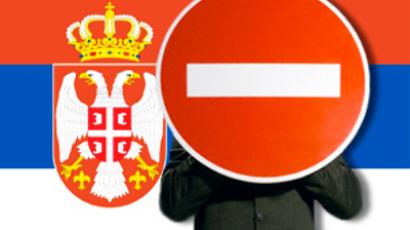ROAR: Russian Opinion and Analytics Review, Apr.27

This Tuesday ROAR presents an opinion on Russia’s attitude towards NATO war games in Georgia and an overview of the global economic crisis by the man who steered Russia out of the previous one.
NEZAVISIMAYA GAZETA’S Oleg Nikiforov writes that for Russia the best way to cut the anti-Russian angle off the NATO exercises which are to commence in Georgia on May 6 would have been to participate in them. It’s too late to argue, he writes, but when a few weeks ago NATO offered Russia to take part in the exercises “so the Russian military could see for itself that Russia is not the target,” we should have called their bluff and said a firm ‘yes’.
Actually, he writes, we are doing something similar to that by requesting permission to send Russian observers to monitor the exercises (to which there has just been an oral ‘Okay’ but nothing in the written form), the effect from their monitoring and their actual presence at the exercises is going to be very beneficial for Russia – but Russian troops participating in the war games would have been better.
The writer says that the Olympic principle (it’s important to participate, not to win) sometimes can be very useful in international politics, especially when not only NATO countries but even two of Russia’s most faithful allies, Armenia and Kazakhstan, are taking part.
IZVESTIA interviews Academician Evgeny Primakov, the President of the Russian Chamber of Commerce and Industry, a ‘political heavyweight’ by the paper’s definition who, as Prime minister, steered Russia out of the turbulent waters of the previous economic crisis in 1998. The paper says that even such critics of the government of that time, the Liberal Andrey Illarionov called the economic policies of the Primakov government the ‘best in decades.’
Of the current global crisis the Academician says that its character and initial impact were so strange that no one in the world could have predicted its full devastating effect. Primakov says he doesn’t believe that Russia is going to emerge from the crisis very soon. He thinks that two years may be a more accurate forecast than several months.
Asked to comment on Finance Minister Aleksey Kudrin’s definition of Russia as an ‘island of stability’ pronounced at the moment when other countries were already suffering and Russia itself was on the brink of the crisis, the Academician says that Kudrin was defending his own policy of accumulating untouchable reserves that would cushion the fall. That policy didn’t work, says Primakov, because in the ore-crisis period it was necessary to invest in infrastructural programs which would have created jobs and demand for industrial products during the crisis. That, says the Academician, could have healed the economy while the spending of reserves only makes the fall softer.
Primakov says Russia should have invested a certain part of the reserve in such programs and left the rest ‘untouchable’. In that case (and it would then have been the matter of finding a correct proportion) the economy would have had an impulse to grow in certain sectors, working against the crisis-related downward vector.
The Academician says today Russia’s policy should be three-fold: we need to minimize the inevitable losses in the economic and social spheres; we need to define the points or sectors of potential growth and set up a hierarchy of priorities, to optimize the process of steering the country out of the crisis; and we need to create a new economic model for Russia, which would take into account all the pre-crisis mistakes.
When the interviewing correspondents say that all that are ‘manual controls,’ the Academician responds that in an emergency nobody relies on autopilot, but a human pilot takes control of the aircraft and flies and lands it to his best ability. Commenting on the comparison between the Obama-Biden act of February 17, 2009 and the counter-crisis measures taken in Russia, Primakov says that the law adopted by the US is very ambitious: to give new life to the ‘American dream’ by investing in spheres facilitating America’s entrance in the XXI Century on a new technological platform, while in Russia the tasks adopted by various businesses, both state and private, are much more modest.
Primakov illustrates his thought with the results of a survey conducted recently by the Chamber of Commerce: only one third of them are planning to fight the crisis with the developing of more competitive products, the rest are going to cut jobs.
Asked to comment on the government policy of support of the financial institutions which turned out to be helping the banks but failing to do anything for the real sector, Primakov calls that ‘a correct policy which has slipped’ because of its vaguely defined conditions. The banks should have been told, he says, that the money is given to them not to turn it into foreign banking instruments and build their own individual ‘cushions’ but to lend to the real sector to keep the industries going. The Academician says it should have been made clear to the banks that received government aid that from the moment of such receipt they become temporary agents of the state, at least within the limit of the amount of received money, in a common effort to fight off the crisis.
Evgeny Belenkiy, RT.













